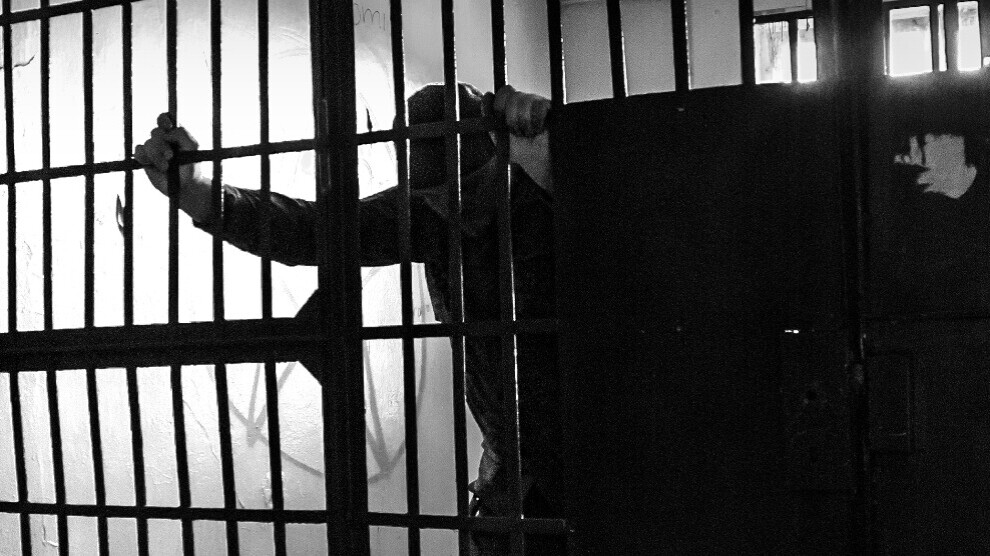2,572 children are in prison in Turkey
As of July 2023, 2,572 children were in prison in Turkey.
As of July 2023, 2,572 children were in prison in Turkey.

The AKP, which ruled the last 22 years of Turkey, followed a policy that prided itself on building prisons during its years in power. In this process, hundreds of new prisons and new isolation methods for the prisoners began to be tried and implemented. Turkey also reached the highest number of child prisoners in its history during AKP rule. To date, 2,572 children are in prison for various crimes.
The biggest discrimination against child prisoners is applied to those inside for political reasons. Although the exact number of juvenile prisoners arrested or convicted for political reasons is not known, some of these children are held in adult prisons, even if this is against the law. Political child prisoners staying in juvenile prisons are in complete isolation or are kept in the same place as judicial prisoners and have a life safety problem.
2,572 children are imprisoned in Turkey
Speaking to ANF, Cansu Şekerci, who takes part in the Civil Society Association in the Penal Execution System (CISST) Child Prisoner Studies, said that according to the July 2023 data of CISST, 2,572 children are in prisons on various charges. There are those who were inside on charges of theft and injury, as well as those who were detained on charges of violating the Anti-Terror Law. Regarding the children aged 0-6 who are in prison with their mothers, Şekerci stated that all the applications made by CISST to the General Directorate of Prisons and Detention Houses were not answered and that therefore they cannot give an exact number.
Children are mostly kept in prisons within the scope of "crimes against property", said Şekerci, adding that children who are exposed to long periods of detention are held on allegations of deliberate killing, looting and opposition to the Anti-Terror Law.
Şekerci said that children should stay in prisons specially built for them, but that is not how it works in Turkey, and continued: “As a rule, children are kept in juvenile prisons. If there is no juvenile prison where the child was arrested, he can be held in the juvenile ward of an adult prison until he is transferred to the nearest juvenile prison. If the juvenile prisons are full, these children are kept permanently in the juvenile wards of adult prisons.”
Political child prisoners face more violations of rights
Şekerci said that political child prisoners were deliberately transferred to distant prisons. “I would like to especially mention the girls who make up 0.02 percent of the prison population. According to the latest statements, the total number of imprisoned girls is 101. There is only one education center in İzmir for convicted girls, while imprisoned girls are kept in women's prisons. Therefore, the opportunities for girls to benefit from a relatively more organized ward system, courses and activities for children are much more limited compared to boys held in juvenile prisons. We know that in some cases there were girls who were kept alone for months, as if in solitary confinement, because there were no other children. “
Children are sent to prisons away from their families
Şekerci said that prison conditions are not suitable for a child's right to life. Regarding the violations of rights against child prisoners, Şekerci said: “It is becoming more and more difficult for independent control mechanisms and civil society to carry out rights-based monitoring and advocacy in prisons. Therefore, we cannot answer the question of what the violations of rights are with comprehensive observation and statistics. However, based on the research we have done as CİSST and the monitoring we have tried to be as comprehensive as possible, I can say that the violations of rights fall in two categories: violations depending on the way the prison sentence itself is included in the law, and violations caused by practices in prison. When a child is imprisoned, the right to stay in touch with his family is realized within the limits of the law and under supervision. As long as the child is in prison, he or she is often withdrawn from formal education. Being able to play games, benefit from the courses, and do sports is subject to the time determined by the administration and limited equipment. As to visits, juvenile prisoners have the right to an open visit, once a week, with the family. However, if the family lives hundreds of kilometers away from the child, or has financial or health limitations, that visit can even take place once a year. It is not important for the ministry that the child is sent to a juvenile prison near the family or that the family receives support to visit the child.”
Torture of child prisoners
Şekerci said that “when we talk about prison, of course, we should also talk about torture and harassment. Many violations remain untold and covered up without being brought to justice. Violations of rights experienced by child prisoners are of a wide scale, from the violation of a child's right to live his/her childhood to the violation of the right to life, which basically means 'survival'.”